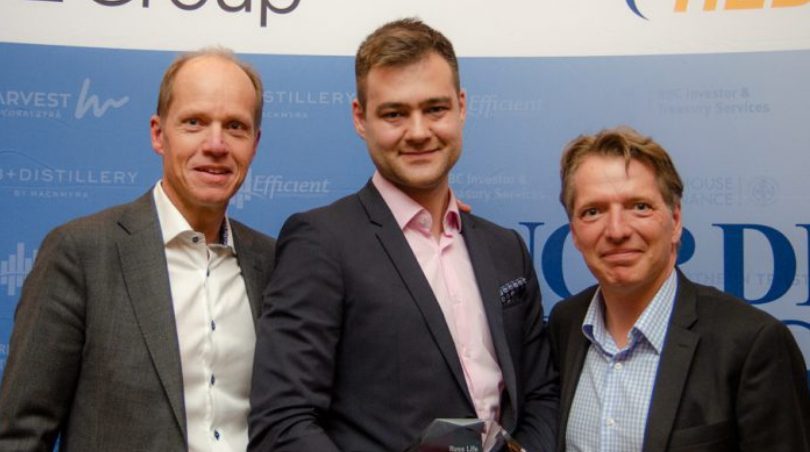Ethics and sustainability in life settlements
9 November 2020 | Wealth Adviser
Investors looking for alpha-generating alternatives uncorrelated to the economic cycle should consider life settlements, says Cristina Lugaro, Director, Ress Capital.
Access original article here
As countries around the world contend with a second wave of the Covid-19 pandemic, sophisticated investors continue their search for alternatives truly uncorrelated to the economic cycle, but which can nonetheless generate alpha. Among the very limited number of such options available, ‘life settlements’ stands out as an asset class, for its potential to generate superior alpha. Investing in life settlements means purchasing life insurance policies from policy holders and subsequently paying the premiums, whereby the investor becomes the beneficiary when the insurance policy pays out.
In developed economies, longevity is uncorrelated to the economic cycle. Additionally, the low volatility and predictable cash flows of a well-diversified life insurance portfolio offer a highly attractive, asymmetric risk profile, well suited to fixed income investors prioritising capital preservation. Among the key drivers behind the immense alpha generating potential of this asset class however, are high barriers to entry. The immediately obvious hurdles are the portfolio size required in order to diversify away the longevity risk associated with individual policies, and the initial loss-making period which precedes the first policies paying. Additionally, and perhaps less immediately visible, are the expertise, experience, and established network required to operate successfully in this space.
Due to this combination of high demand for fixed income alternatives and high barriers to entry, at Ress Capital we have seen substantial interest from investors in recent months. Life settlements as an asset class however is not that well known outside of the US and as such prospective investors tend to have a lot of question. In particular, the most frequently asked questions, by existing and prospective investors alike, are around ethics and sustainability.
There are several layers to understanding why life settlements provide an ethical investment opportunity, the first of which is the function and purpose of the secondary market for life insurance policies. In the US, around 60 million households have a life insurance policy, resulting in a very large primary market and a combined USD20 trillion worth of life insurance policies. As such, the secondary market for life insurance is a critical piece of financial infrastructure, which provides policyholders an option otherwise denied to them by the insurance companies. Without the secondary market, holders of a policy no longer needed would have to simply cancel their policy, or in a best-case scenario accept the significantly smaller ‘surrender value’ offered by an insurance company. In the secondary market however, the policy holder can sell the unwanted life insurance policy at a significantly higher price. The most common reason for a life insurance policy being sold is that the policy holder’s children are grown up and financially independent, meaning that a policy which was once essential has become and unnecessary expense.
One ethical consideration which investors are increasingly showing concern for is the effect that the Covid-19 pandemic might have on the asset class. Specifically, investors ask whether Covid-19 mortality could result in premature payouts and thus in profit being made from the most unfortunate victims of the pandemic. The answer to this question is no, primarily due to the fact that the vast majority of life insurance policies are held by individuals whose position on the income spectrum is strongly correlated with better than average health and access to healthcare.
A fundamental driver of ethical best practice is the highly regulated status of the US secondary market for life insurance. Life settlement transactions are regulated by State Insurance Commissioners in 45 states, meaning that 90 per cent of the US population are covered by regulations and protections. As regulators are strongly in favour of the right of policy holders to sell their policies on the secondary market, standardised contract terms and protections for all parties to the transaction are rigorously enforced. Regulation is also promoted by the Life Insurance Settlement Association (LISA) and the Institutional Life Markets Association (ILMA). Jonas Mårtenson, founder of Ress Capital, is a board member at ILMA.
As in any industry however, regulatory protection for consumers and investors should be considered a set of minimum requirements, to be built upon and expanded by market participants. A good indication that a fund manager is committed to sustainability is that they are a signatory to the United Nations Principles of Responsible Investment. An equally important indication that a firm is ethically minded, are the principles it ascribes to unilaterally. Ress Capital for its part has ethical guidelines and policies in place, approved by the Swedish Financial Supervisory Authority, which go above and beyond US regulatory requirements. For instance, we require that, in addition to the policyholder, the beneficiaries of the policy – often a spouse or children – agree in writing to the transaction. In our view, though not a regulatory requirement, evidence that the sale has been discussed among all stakeholders is essential for a transaction to be ethically sound. Investors should also check before investing in a fund, that the manager only purchases life insurance policies through registered and authorised brokers and that the transaction is settled in one of the 45 regulated states. This is especially important if the policy holder does not live in one of these states, as it ensures that the seller still receives the same rights and consumer protection.
At Ress Capital we have seen interest in life settlements increase significantly in line with market uncertainty, and we are very pleased to see that investors are taking sustainability and ethical considerations into account. We expect continued growth in life settlements as an asset class and continued growth in investor scrutiny of these important issues.
About Resscapital
Resscapital AB is an alternative investment fund manager (AIFM) authorised and regulated by the Swedish Financial Services Authority (Finansinspektionen).
We have since 2011 bought a diversified life insurance portfolio on behalf of Ress Life Investments, which is listed at NASDAQ Copenhagen. Proprietary portfolio management systems and pricing models have been developed. The company also collaborates with independent medical underwriters specialising in senior mortality.
The management team has complimentary backgrounds and international experience from having worked at major banks, institutional investors and hedge funds. The board of directors consists of both successful entrepreneurs and senior managers with extensive experience from the financial industry.
See here for more news from Resscapital AB
Attractive Long-Term Returns
Ress Life Investments A/S purchases US life insurance policies in the secondary market. The company owns a diversified portfolio and policies are issued by over 50 highly rated US life insurance companies. The investment objective is to provide attractive uncorrelated returns in USD over the long-term. Ress Life Investments is listed at Nasdaq Copenhagen since 2015.
Attractive risk-adjusted return – the target return is 7% per annum in USD without any leverage.
Low volatility – a well-diversified life insurance portfolio offers investors stable and attractive risk-adjusted returns. Monthly historical volatility during the last five years is 4%.
Risk diversification – the return profile of the life insurance portfolio is characterised by low correlation to other asset classes, which makes the strategy attractive for investors seeking risk diversification.
Exchange-traded – the company is listed at NASDAQ Nordic and a market-maker provides daily prices.
Ress Life Investments A/S is a limited liability company incorporated in Denmark. The company is an alternative investment fund (AIF) managed by Resscapital AB, a limited liability company incorporated in Sweden. Resscapital AB is authorised as an alternative investment fund manager (AIFM) and supervised by Finansinspektionen, the Swedish Financial Supervisory Authority.
The depositary for Ress Life Investments A/S is Artha Fondsmaeglerselskab A/S. The administrator is Citco Denmark ApS, which is part of the Citco Group. The independent board consists of four members with extensive experience from the financial markets. Ress Life Investments A/S is audited annually by Deloitte.
Ress Life Investments A/S is admitted to trading and official listing on NASDAQ Copenhagen. The company’s short name is RLAINV, ISIN DK0060315604. Current share prices can be found under the segment – Alternative Investment Funds on NasdaqOMXNordic.
Danish and Swedish retail investors and professional/accredited investors may also subscribe for shares on a monthly basis at the company’s current net asset value per share.




